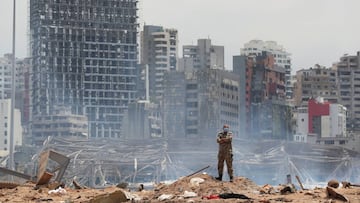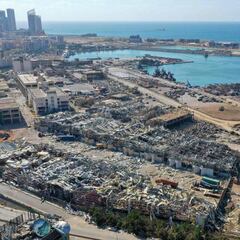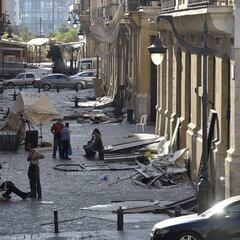EU pledges to aid Lebanon in wake of Beirut explosion
European Commission President Ursula von der Leyen says trade benefits aimed at supporting Lebanon are being explored following Tuesday's explosion in Beirut.

In response to the explosion in Beirut, the European Union decided to offer Lebanon a preferential trade agreement on Thursday, amidst fears that the Middle Eastern country might be on the verge of economic collapse following the catastrophe that took place on Tuesday.
European Commission President Ursula von der Leyen announced that the bloc is ready to support Lebanon with €33 million worth of emergency aid through preferential trade and customs privileges, stating: "The Commission stood ready to explore how to boost our trade relations in this challenging time, in particular in the form of further preferential trade and customs facilitation."
Follow live coverage of the aftermath of the explosion
Tuesday's explosion left 137 dead and more than 5,000 injured, with the capital city's port and its radius having been destroyed. The damage caused by the blast is estimated to be worth around $15 billion, while hundreds of families have become homeless.
In addition, Von der Leyen promised to help in assessing Beirut's reconstruction, along with participating in discussions with international financial institutions in an attempt to seek further financial aid.
Limited financial capacity to handle the situation
Lebanon was already financially struggling prior to the blast, which deeply worsened the country's situation as the Lebanese economy minister, Raoul Nehme, announced the country has a "very limited" financial capacity to deal with the crisis.
Related stories
He told Sky News Arabia: "The capacity of the state is very limited, and so is that of the central bank and the banks." He added: "We're not swimming in dollars."
The minister noted that the International Monetary Fund was the only resort left for Lebanon, as the country had been already struggling with a dollar crunch before Tuesday.

